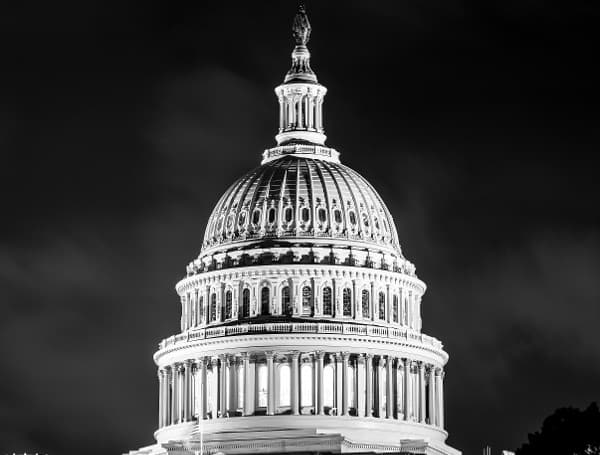The prospect of another government shutdown looms large over our nation, yet the cacophony in the halls of Congress seems louder than ever. As a presidential candidate, I am duty-bound to weigh in, not just with criticism, but with a plea for unity, compassion, and foresight.
Across America, the middle class – the backbone of our nation – watches with great concern. They have already been squeezed to their limits by the spiraling effects of inflation. Every shutdown, every impasse, makes it even more challenging for them to plan their futures, meet their immediate needs, or even dream of a stable life for their children.
Moreover, dedicated government employees who ensure the efficient functioning of our nation find themselves once again at the mercy of political grandstanding. These hardworking individuals are set to see their livelihoods threatened, unsure of when their next paycheck might arrive. This is not how the world’s most powerful nation should treat its workers.
So, why does this keep happening?
At the core of the repeated shutdowns is not just policy disagreement but a deep-seeded political culture of obstruction. The art of compromise, which once made our legislative chambers vibrant and dynamic, is becoming a lost skill. Every difference is amplified; every consensus seems unreachable.
To sum it up, your elected officials in Washington simply don’t care. Even as we lose our sacred AAA bond rating and watch interest costs spiral, our elected officials in both parties take a summer vacation while financially driving us to death’s door.
The 1974 Congressional Budget Act perspicuously lays out budget deadlines; it is simply ignored by the President and both Houses of Congress. The leaders of both parties haven’t followed the budget rules for over 20 years. Introduce the Budget the first Monday in February? Never! The House and Senate agree to a concurrent resolution on the budget by April 15th? No way! Pass the 12 separate spending bills by October 1st? Not since 1996! Obfuscate the issue and attack each other until we take our last financial breath? Of course!
But who benefits from this? Certainly not the American people. Every shutdown costs billions, slows our economy, and erodes global confidence in America’s ability to govern itself. It’s a self-inflicted wound we can’t afford, especially at a time when we are grappling with so many external challenges.
In the current dispute, both sides have valid concerns. But the insistence on seeing only in black and white, refusing to find common ground, means we all lose. The continuing resolutions, the temporary solutions – they’re all just band-aids on a festering wound. The nation needs surgical precision to heal, not further division.
The truth is stark: If we don’t start making hard choices, it’s the American people who will bear the brunt of their indifference, particularly the middle class. Already grappling with higher prices for basic commodities, medical care, insurance, and education, the middle class faces another potential hurdle in a stalled economy, a direct result of government shutdowns.
Furthermore, it’s not just about the immediate economic ramifications. With every shutdown, with every display of blatant partisanship, we erode the trust of the people in their elected representatives. We risk breeding cynicism and disillusionment among our citizens. The very foundation of our democracy—people’s faith in the system—gets shaken.
I propose a fresh approach: Firstly, we must prioritize open dialogue and bridge-building. It’s high time we reintroduced regular bipartisan meetings, open forums, and non-partisan policy think tanks.
Next, let’s revamp the budgeting process. The current annual showdowns over spending are neither efficient nor effective. Perhaps we need to consider multi-year budgeting, ensuring stability and foresight in our financial planning. Such models, adopted by other nations and even some of our states, can foster longer-term thinking and mitigate the annual budget battles.
Finally, we must engage the American people directly. Through town halls, referendums, and other platforms, let them voice their concerns and priorities. Let us remember: The government exists to serve the people, not the other way around.
Whatever we come up with, there must be some real teeth in the law so that if it is not followed to the letter, Congress and the President suffer real consequences. How about not getting paid for a year if they miss a deadline or not being able to run for reelection if the procedures aren’t followed? Maybe, just this time, let’s have the “Washington Fat Cats” suffer, not the American people.
In conclusion, the political tug-of-war we witness today benefits no one and harms everyone, especially our already destroyed middle class. As we stand on the precipice of yet another shutdown, I implore my colleagues on both sides of the aisle to step back, reassess, and recalibrate their approach. The stakes are too high and the consequences too grave.
America deserves better. Let’s give her the governance she rightly demands – efficient, empathetic, and forward-thinking. Let’s end the gridlock and build a brighter future together.
Android Users, Click To Download The Free Press App And Never Miss A Story. Follow Us On Facebook and Twitter. Signup for our free newsletter.
We can’t do this without your help; visit our GiveSendGo page and donate any dollar amount; every penny helps

